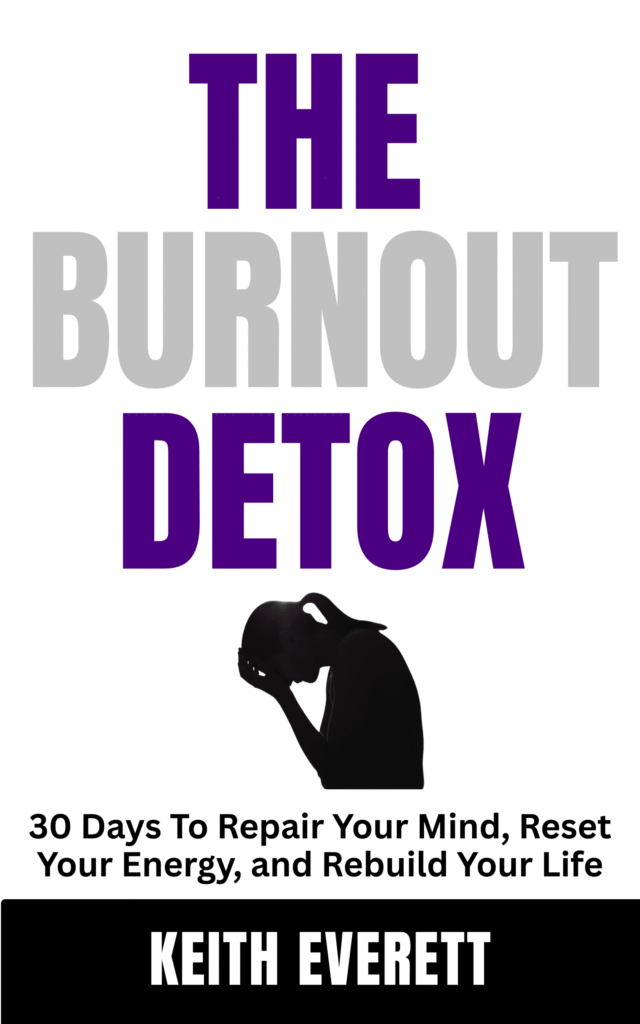As 2023 clicks over to 2024 and the New Year’s resolutions start to come to life, I thought this would be a really good time to talk about “The 12 Week Year”, an amazing insight into what you can REALLY achieve in less time than you think.

You see, although time is a reality, our perception of what we can achieve in any given time period is slightly skewed by our own beliefs. Up until 1954, it was thought “impossible” to run a 4 minute mile, of course, once Roger Bannister achieved this, many others have achieved it since.
The “Impossible” is really I’m possible.
How many New Year resolutions fail?
Researchers suggest that only 9% of Americans that make resolutions complete them. In fact, research goes on to show that 23% of people quit their resolution by the end of the first week, and 43% quit by the end of January.
You don’t need resolutions.. you need a proper plan. To get things done, and I mean anything, you don’t need January the 1st to kickstart them. It all happens now. And it’s a process, not a one off.
Here’s the Story, pay close attention:
In the realm of personal and professional development, the traditional annual goal-setting approach is undergoing a paradigm shift, giving rise to the revolutionary concept known as the “12-Week Year.” Pioneered by Brian P. Moran and Michael Lennington in their book of the same name, this methodology challenges the conventional yearly planning cycle, presenting a condensed timeframe that accelerates achievement and propels individuals and organizations toward peak performance.
1. Rethinking the Yearly Paradigm:
- The Pitfalls of Annual Planning: The 12-Week Year challenges the shortcomings of annual planning, where goals set in January often lose momentum by month 2, resulting in delayed or abandoned objectives.
- Introducing Quarterly Cycles: By compressing the annual timeline into 12-week cycles, individuals are compelled to focus with heightened intensity, fostering a sense of urgency that propels them toward immediate action.
2. The Core Principles:
- Clarity: The foundation of the 12-Week Year is laid with crystal-clear clarity regarding what individuals aim to achieve within the upcoming 12 weeks. This includes both professional and personal objectives.
- Focus: Distilling goals into a focused set of priorities ensures that attention and effort remain concentrated on the most impactful activities. The elimination of non-essential tasks enhances productivity.
- Discipline: The 12-Week Year demands a disciplined approach to daily activities. Consistency in executing planned actions, even in the face of distractions, builds the momentum necessary for success.
- Accountability: Emphasizing personal accountability is pivotal. Individuals hold themselves answerable for their commitments and outcomes, fostering a sense of ownership and responsibility.
3. The Implementation Process:
- Goal Setting: Begin by setting SMART goals—Specific, Measurable, Achievable, Relevant, and Time-bound. These goals should be challenging yet realistic, inspiring a sense of motivation and accomplishment.
- Creating a Strategic Plan: Develop a strategic plan that outlines the specific actions required to achieve the set goals. This plan serves as a roadmap for the 12-week journey, detailing milestones and deadlines.
- Weekly Execution: Break down the 12-week plan into weekly actions. Focus on completing these weekly tasks with precision, aligning them with the overarching goals. Consistent execution is the linchpin of success.
- Tracking Progress: Regularly assess progress against the plan. Tracking performance allows for real-time adjustments, ensuring that individuals stay on course and make informed decisions based on their evolving circumstances.
4. Overcoming Challenges:
- Adaptability: The 12-Week Year encourages adaptability. As external factors shift, individuals have the flexibility to recalibrate their strategies, ensuring continued progress even in the face of unforeseen challenges.
- Mindset Shift: Embrace a mindset that views obstacles not as insurmountable roadblocks but as opportunities for growth. This shift in perspective fosters resilience and a proactive approach to overcoming hurdles.
5. Benefits of the 12-Week Year:
- Enhanced Focus: The condensed timeframe compels heightened focus on priority tasks, eliminating the dispersion of energy on less impactful activities.
- Accelerated Results: By accelerating goal achievement cycles, the 12-Week Year facilitates quicker realization of outcomes, boosting motivation and confidence.
- Increased Agility: The quarterly planning cycle enhances adaptability, allowing individuals to pivot quickly in response to changing circumstances or opportunities.
6. Success Stories:
- Individual Achievements: Numerous individuals and organizations have experienced remarkable success by adopting the 12-Week Year methodology. From entrepreneurs to corporate teams, the principles have proven universally applicable.
- Notable Examples: Case studies showcasing the transformative impact of the 12-Week Year on productivity, revenue growth, and personal development underscore its efficacy as a performance accelerator.
7. Sustainable Implementation:
- Cultivating Habits: The 12-Week Year is not a one-time strategy but a sustainable approach to goal achievement. As individuals consistently apply its principles, they cultivate habits that perpetuate success beyond the initial cycles.
- Continuous Improvement: Periodic reviews and reflections after each 12-week cycle enable individuals to refine their approach continually. Lessons learned contribute to an iterative improvement process.
Conclusion
The 12-Week Year emerges as a dynamic and transformative approach to goal setting and achievement, challenging the status quo with its emphasis on clarity, focus, discipline, and accountability. By compressing the traditional annual planning cycle into potent 12-week increments, individuals unlock accelerated results, heightened focus, and a renewed sense of agency over their destinies.
As the 12-Week Year continues to gain traction, its principles illuminate a path toward sustained peak performance and the realization of aspirational goals. Embrace the power of the 12-Week Year and embark on a journey where success is not just a destination but a continuous and evolving reality.
By continuous practice, it is not hard to see that once you stick to this formula it can be quite realistic to achieve in 12 weeks the things you spent the entire year on.
I hope you got value from this post. If you did, do leave a comment and share the post
Have a great day
Keith































































Add comment